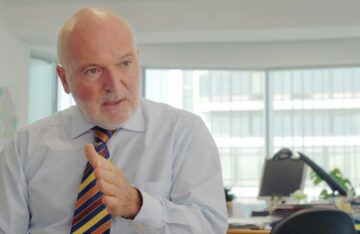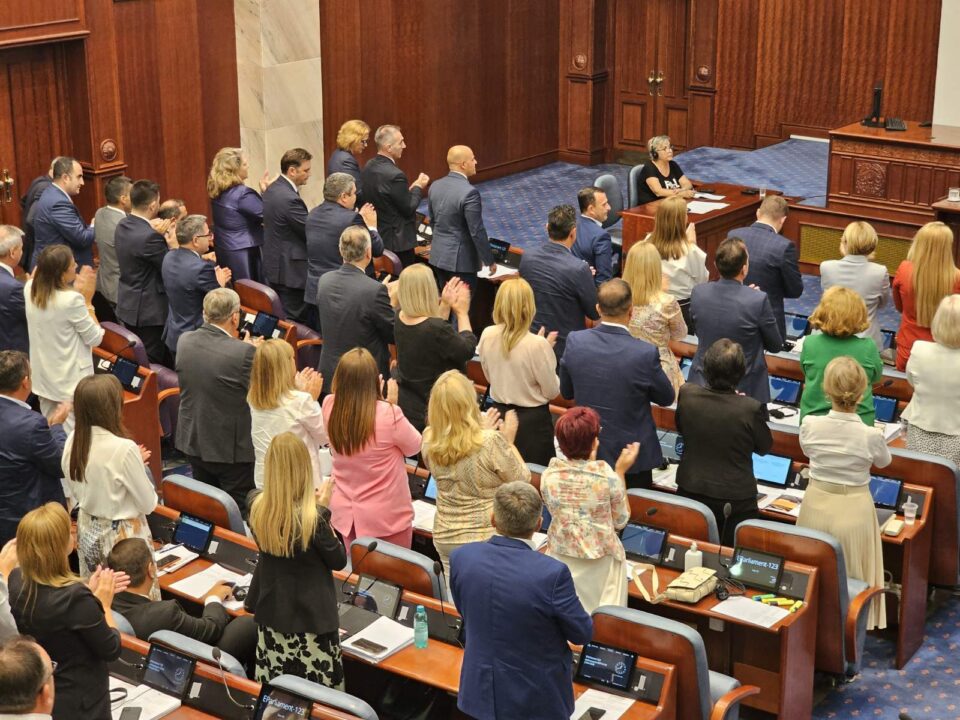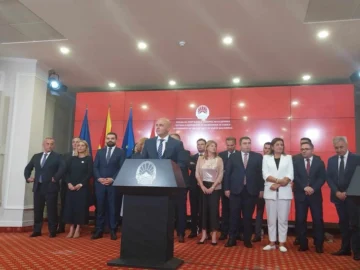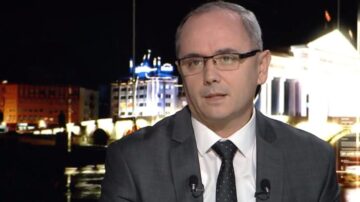In the Macedonian Parliament today, the coalition of DUI, SDSM and the Alliance of Albanians were unable to show enough votes to amend the Constitution in line with the Bulgarian demands. During the vote to set the agenda for the day, all VMRO-DPMNE members of Parliament held firm, and the majority had only 70 votes in favor, with 47 opposed. 80 votes are required to adopt the amendments that would add the Bulgarians, as well as the Croats, Slovenes and other nations, to the Constitution, and the outcome badly undermined the position of the Kovacevski Government, who insisted that he will get the votes he needs by bringing VMRO members of Parliament over to his side.
After the vote and a brief discussion, Parliament Speaker Talat Xhaferi dismissed the session and did not set a firm date for when it will resume, which was seen as defeat for the coalition. VMRO-DPMNE speakers urged Xhaferi to put the matter to the vote immediately, so that the issue is resolved and the country can then go ahead to holding early elections – with the main piece of the DUI-SDSM-AA agenda defeated.
An ashen faced Kovacevski held a press conference after the session, flanked by other members of his Government. “Our pro-European coalition will not succumb to the irresponsible and unstatesmanlike behavior of the opposition and we will remove the blockade from the path of the European integration of the country. Our future is in integration and not in isolation”, Kovacevski said. He repeated the position, long worn by SDSM from the days of the Colored Revolution, that through making concessions to its neighbors Macedonia will be able to join the EU and stop the emigration of its youth. Kovacevski did not say how he expects to break the resistance of VMRO-DPMNE – his predecessor Zaev arrested and blackmailed over a dozen members of Parliament to push the Prespa Treaty through the assembly.
Because of the decades of humiliation, culminating with the French and the Bulgarian veto even after Macedonia changed its name to placate Greece, this proposal is hugely unpopular among ethnic Macedonians. Only 32 Macedonian members of Parliament voted to begin the initiative. A majority of the votes to begin the process – 38 – were from ethnic minority members of Parliament: Albanians, Turks, Roma, Vlach and a Serb.
On the VMRO side, 44 members of Parliament – most of them Macedonians – voted against. Three ethnic Macedonian MPs from other parties also voted against the proposal.
The session was marred by several nationalist outbursts from Albanian members of Parliament. Frequent party turncoat Skender Rexhepi warned that, if Macedonia stalls on the EU path due to the Macedonians’ refusal to accept the Bulgarian demands, then ethnic Albanian municipalities may seek a path forward on their own. The comments were seen as clear threat of secession.
In the near future we could have other demands. The Albanian municipalities can look for a way toward the EU. That is why we need to be responsible here, Rexhepi said.
Talk of secession has been growing as neighboring Kosovo is pushed to allow the creation of a union of majority Serbian municipalities. This has prompted similar calls in majority Albanian municipalities in Macedonia, and during a recent visit by Kosovan Prime Minister Albin Kurti to Skopje and Tetovo, he was welcomed by flags of Greater Albania.
SDSM was hoping that high level international visitors will help break VMRO – similarly to the visits from the likes of Merkel, James Mattis and Theresa May in 2018 – which never the less failed to get Macedonians to vote for the imposed name change in a referendum. In the run up to this session, Germany adopted a Bundestag resolution acknowledging the national heritage of the Macedonians – meant to assure the country that the process of joining the EU will not be turned into rewriting the Macedonian national identity according to the Bulgarian narrative. Several countries dispatched their foreign ministers and the US sent a senator from Connecticut, but this did not get VMRO to move.
Erwan Fouere, former EU ambassador to Macedonia and diehard supporter of SDSM, said that maybe Bulgaria should also be asked to make some concessions.

The choices before the Macedonian people are difficult. If Bulgaria wants to be remembered as an EU member state that respects and upholds the fundamental principles of human rights and the values on which the EU is based, it must accept and implement the verdicts of the European Court of Human Rights on the Macedonian minority in Bulgaria, after the amendments are adopted in the Parliament of Macedonia, Fouere said.
VMRO-DPMNE has proposed that Macedonia asks Bulgaria to make such concessions, including finally allowing Macedonians in Bulgaria to form their own associations and clubs, but the talks with SDSM on setting a joint position on this issue failed because of attempts to spin them for short-term political gain.







Comments are closed for this post.